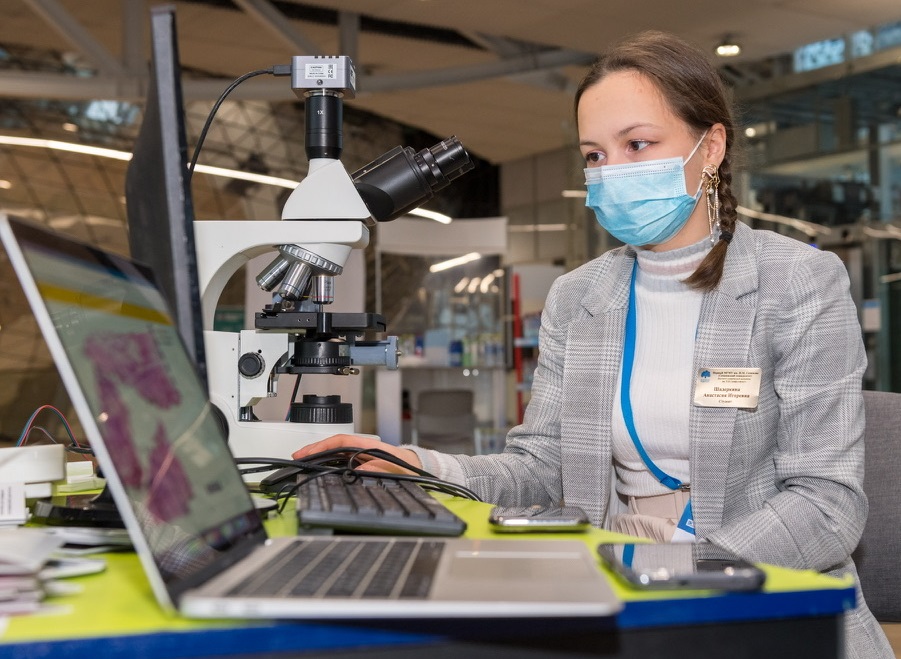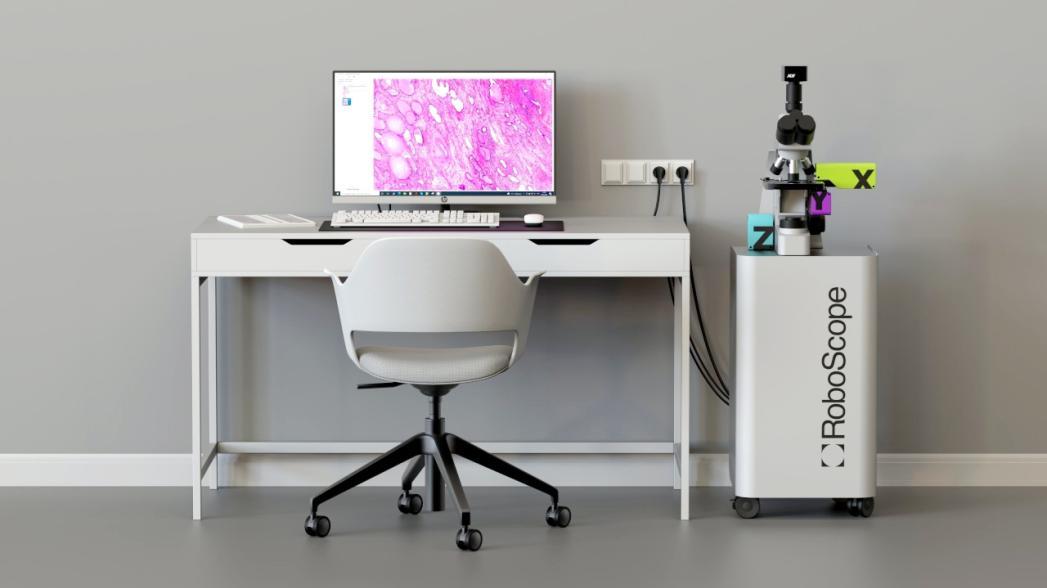During the year, more than 7 million pathomorphological studies are performed in Russia. And this figure is on the rise. At the same time, a significant part of the equipment fleet is not digital. All this increases the burden on doctors, which does not have the best effect on the final quality. The RoboScope hardware and software complex helps to systematically solve the main problems of the pathomorphological service. How exactly? Ilya Efremov , CEO of the project, told evercare.ru about this .

— What is the meaning of RoboScope?
— Let me start by saying that, according to the 2020 statistical study “The State and Main Tasks of the Pathological Anatomical Service of the Russian Federation,” more than 7 million pathomorphological examinations are performed in Russia every year. This is approximately 42 million glasses. There is a tendency to increase the number of such studies, while the service is experiencing a shortage of staff. That is, to put it simply, there is a lot of work - few people.
At the same time, there is not enough space in laboratories to store histological preparations, and the shelf life of glasses is limited. But from time to time there are situations when it is necessary to compare something, double-check, and the “glass” is already unsuitable for this.
Another inconvenience is that clinicians do not have access to the results of the study, or they have to wait too long. Most medical centers do not have a digital storage system and transmission of digitized data. There is also no telemedicine pathomorphological service, although in conditions of a shortage of specialists, it could increase the availability of this type of care for patients, which is especially critical, for example, in oncology.
Globally speaking, there is a trend towards the digitalization of medicine, but our pathomorphological service is not keeping up with it. It does not manage to keep up due to the fact that technological solutions are very expensive, this, in our opinion, is the main problem. Reference centers are now being created as a solution to this problem. We propose not to remake the existing pathomorphological service into a centralized system of reference centers, but to equip it with affordable equipment. RoboScope is capable of this.
The digitalization of this industry, in addition to solving existing problems, also opens up huge prospects. If instead of physical preparations there are digitized copies, it will be better for everyone: clinicians, diagnosticians, and patients.
RoboScope allows automated (without human intervention) scanning and digitization of histological preparations in the open and widely used DICOM format in Russia and the world. The complex is easily integrated into any medical institution both from the side of receiving a data stream for digitization, and from the side of uploading these data: you can store them locally or upload them to any MIS, LIS or telemedicine platform. Now we are successfully working with NetHealth as a recipient of digitized data.
We strive to improve many processes associated with pathological studies, improve their quality and increase the accuracy of diagnosis for the patient.
In the future, digitalization opens up opportunities for creating datasets, using machine learning and artificial intelligence, for training on virtual preparations, and introducing telementoring, which will give impetus to the development of telemedicine and pathomorphology. And access to information from a wide range of doctors will allow implementing an interdisciplinary approach in the management of complex patients.
The solution is focused on pathology departments, forensic centers, referral centers, etc.
- What does your product look like?
“The complex consists of a control and data analysis system that looks like a pedestal, a light microscope with a movable table and a camera. The doctor does not need to have a computer to use our product. It will be delivered immediately with a monitor and a mouse - that is, the specialist receives a ready-made solution. There are no special requirements for the room where the RoboScope should be placed.
One of the key ideas is to save the doctor from having to be near the microscope. Nursing staff will handle it. The doctor can view the digitized images in his office or remotely from anywhere.
At what stage is your project now?
— We have an MVP ready. We are now finalizing it to the state of a “final product” and are preparing to submit documents to Roszdravnadzor for registration of the complex as a medical product.
I would like to note that our main goal as a team, as a project and as a startup is to create a product, a product that will improve people's lives.
— Do you have partners?
- So far, we have not concluded any agreements with anyone, but there is interest in our product. From both the medical and scientific communities. For example, we had several requests from doctors who saw our presentation. They wanted to know when RoboScope would be ready and available for purchase.
There are interesting ideas with partners from NtechLab who are developing solutions based on artificial intelligence. Now, on the basis of the Central Research Institute of Tuberculosis, they are digitizing data, which will later become the basis for training the neural network. Nothing prevents us from adjusting to another task - digitizing the fluorescent staining of glasses for the detection of tuberculosis. And since we are talking about scientific, and not medical activities, registration of a medical product is not required here. The situation is similar with the Papanicolaou test, we have colleagues who develop software solutions for working in this direction and they need an APC for digitization, this is already the third direction, but we are looking at that too.
As you can see, we are a rather flexible team, and I would like to note this. Since we control both software and hardware, we can easily rebuild.
— How much do you depend on Western supplies of components?
— Our product has some imported components, but they are all produced in the Asian region. We are completely independent from European and American suppliers. As for the software part, these are either our own developments or from open sources. We tried to make our product as domestic as possible, in order to ensure its availability in the broadest sense of the word, including price. Our concept is to offer the market inexpensive digital equipment that will cover the bulk of the most demanded tasks.

According to the aforementioned study by the Pathology Service, almost 40% of the country's pathology equipment is over ten years old and needs to be replaced. In addition, during the indicated period, they continued to purchase light microscopes, which sooner or later will have to be changed to digital ones. We aim to capture this market by offering an affordable option with many benefits.
At the same time, we consider different business models, including cost-sharing, in which equipment is provided free of charge, and monetization occurs by charging a fee for research, that is, for glass. We are ready to offer service with a permanent upgrade, aimed at expanding the functionality of the complex.
— At what expense is the project being implemented?
So far, this is our own investment. But we have received the status of a Skolkovo resident and are planning to receive grants from this fund. They also applied for a grant from the Foundation for Assistance to the Development of Small Forms of Enterprises in the Scientific and Technical Field of Bortnik. We are negotiating with strategic partners to attract investment.
- Do you have competitors?
— Of course, there are similar digital complexes on the market, but they are focused on other niches. This equipment is of a higher class, primarily their “optical” filling, which predetermines a higher cost. Their devices are more expensive than ours at times. There is a startup in the Russian market that is engaged in a similar project, but, to be honest, apart from a few articles on the Internet, little is heard about them. It is not clear whether they have an MVP, at what stage of the commercialization of the idea they are now.
Taking into account the competitive advantages that I mentioned above, we see very good prospects for ourselves.
Material taken from EverCare.ru
Interviewed by Ekaterina Pogontseva







